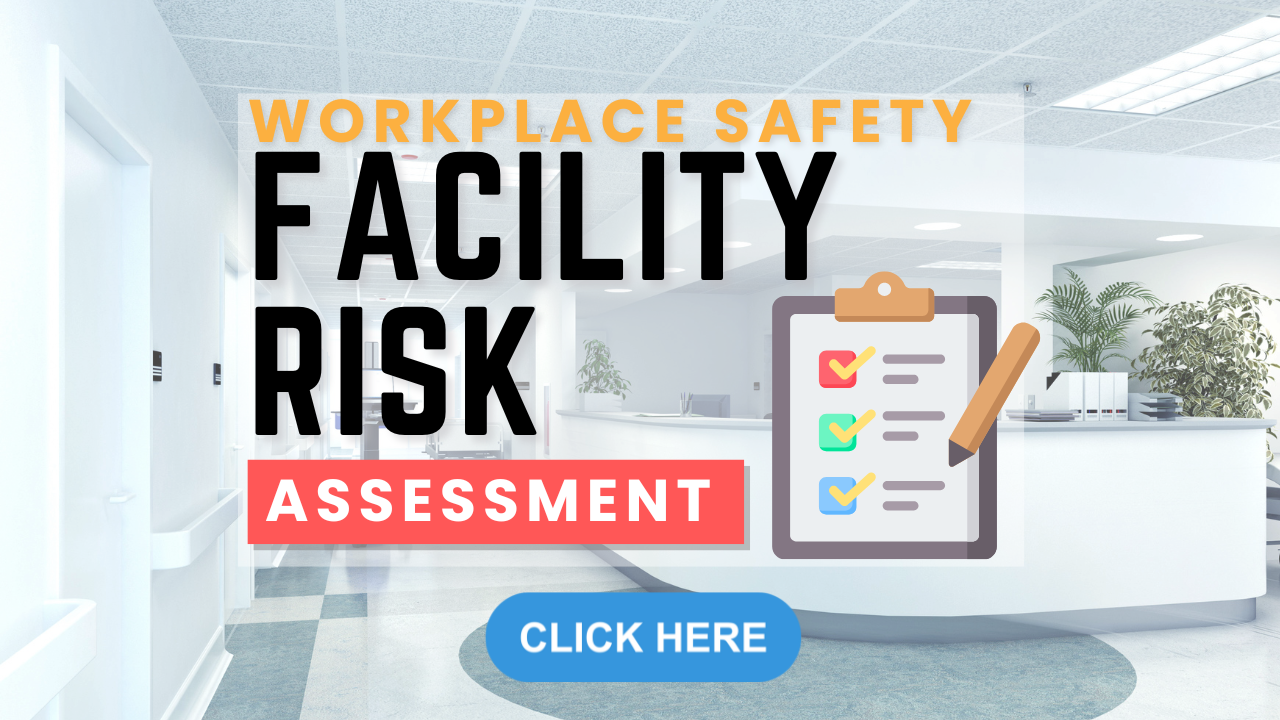Active Shooter Prevention and Response Program for Healthcare | Recording
Overview: Active shooter situations require specialized protocols, especially within health care facilities. This session will equip you with strategies to prevent and respond effectively to such events. Topics include recognizing potential threats, implementing preventative measures, creating evacuation plans, and understanding the critical role of healthcare staff during a crisis. With actionable insights, you’ll be better prepared to protect patients, visitors, and colleagues during these rare but vital moments.
Workplace Safety Facility Risk Assessment | member exclusive resource | Video
This visual guide is designed to assist healthcare facilities in critically evaluating their own operational procedures and physical environments. The goal is to identify potential vulnerabilities and ensure that their teams are well-prepared to respond effectively to any safety or security incident.
Workplace Safety in Healthcare - Interactive Case Studies and Effective Response Strategies | Recording
In this highly interactive session, participants will review real-life case studies from healthcare settings to better understand how to respond to various emergency situations. Through group discussions and scenario-based exercises, you will have the opportunity to apply your knowledge and practice responding to both common and extreme situations in healthcare. This session will provide valuable feedback, insights from peers, and expert guidance on refining your crisis response strategies to ensure optimal outcomes during real-life incidents.
Workplace Safety Workshop | member exclusive | Recording
Originally recorded during SDAHO’s in-person Workplace Safety Workshop held on May 13, 2025. This workshop is designed to strengthen safety and security practices within health care facilities, covering critical topics including facility risk assessments and de-escalation techniques.




